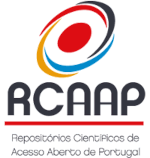Ethics Policy
Ethical approval of research involving human participants
Our policy is to ensure that all articles published by AHRJ report on work that is morally acceptable, and expects authors to follow the World Medical Association’s Declaration of Helsinki. To achieve this, we aim to appraise the ethical aspects of any submitted work that involves human participants, whatever descriptive label is given to that work including research, audit, and sometimes debate.
Statement of Ethics Approval
We require every original research article submitted to include a statement that the study obtained ethics approval (or a statement that it was not required and why), including the name of the ethics committee(s) or institutional review board(s), the number/ID of the approval(s), and a statement that participants gave informed consent before taking part. You are responsible for obtaining ethical approval for your research prospectively.
Appraisal of Ethical Issues
Editorial appraisal of ethical issues goes beyond simply deciding whether participants in a study gave informed consent although this is, of course, one very important issue to consider. Editors should judge whether the overall design and conduct of each piece of work is morally justifiable, as summed up by the following questions:
-
How much does this deviate from current normal (accepted, local) clinical practice?
-
What is the (additional) burden imposed on the patients (or others)?
-
What (additional) risks are posed to the patients (or others)?
-
What benefit might accrue to the patients (or others)?
-
What are the potential benefits to society (future patients)?
Even when a study has been approved by a research ethics committee or institutional review board, editors may be worried about the ethics of the work. Editors may then ask authors for more detailed information such as:
-
how they justified the ethical and moral basis of the work
-
to provide the contact details of the research ethics committee that reviewed the work, so that the journal can request further information and justification from that committee
-
to explain what ethical issues they considered and how they justified their work, for studies that have not been reviewed by research ethics committees or institutional review boards








